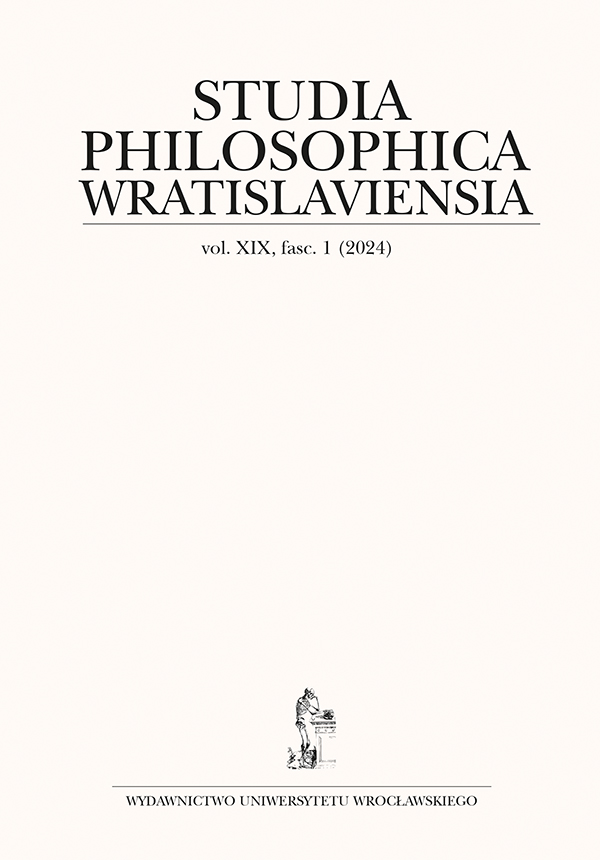

Artykuły

The Muslim tradition brought secondary and sectarian literature on upfront and made its followers paralyzed by the confines of theological structures deactivating any human potentials bestowed upon them. Any attempt for aesthetic and artistic creativity expressing human emotional capacity could be easily condemned and banned for being against the Sharia law. Thus, human life becomes a subject of thorough surveillance under the light of sectarian, secondary and tertiary, narratives. This dilemma creates a conflict between the dynamic human powers of creativity and historically accumulated mindsets. This paper aims at investigating instances of this tension and finding some alternative responses to the problems it poses.
Abrahamov B., Islamic Theology: Traditionalism and Rationalism, Edinburgh 1998.
Aslan İ., Aklın ve Dilin Sınırlarında Kur’an, Ankara 2014.
Ay M., Dichotomic Structure and the Possibility of the Third Mode in Muslim Theology, „Islam and Christian-Muslim Relations” 18 (2007), s. 479–494.
Balkin J.M., Deconstruction, [w:] A Companion to the Philosophy of Law and Legal Theory. Second Edition, D. Patterson (ed.), Chichester 2010, s. 361–367.
Berger P.L., The Social Reality of Religion, Harmondsworth 1973.
El-Biruni E.R., Tahqiq Ma Li’l Hind, tłum. K. Burslan, Ankara 2015.
Sahih al- Bukhari, tłum. E. al-Saleh, M. al-Saleh, O Islamie, 2008–2021, https://sites.google.com/site/oislamie/3-hadisy-zbiory/sahih-al-bukhari.
Efendi M.A., el-Okyanusu’l-Basit fi Tercemeti’l-Kamusu’l-Muhit/Kamusu’l-Muhit Tercümesi, Türkiye Yazma Eserler Kurumu Başkanlığı Yayınları, Mustafa Koç (ed.), Çeviren ve Hazırlayan: Mustafa Koç-Eyyüp Tanrıverdi, İstanbul, 2014, ed-Diyn” maddesi, Cilt: VI, s. 5359–5360.
al-Dżułajni, Al-Burhan fi Usul al-Fıqh, A. ad-Dib (ed.), Katar 1399/1979.
Ersoy M.A., Safahat, A. Karadeniz (ed.), Istanbul 2009.
al-Ghazali, Al-Mustafa min ‘llm al-Usul, H. Ibn Zuhair Hafız (ed.), Madina 1413/1992–1993.
Abu al-Qasim Hibat Allah ibn al-Hasan al-Lalaka’i, Szarh usul i’tiqad ahl al-sunna ła’l-dżama’a min al-kitab ła’l-sunna ła-idżma’ al-sahaba ła’l-tabi’in min ba’dihim, A. Sa’d Hamdan (ed.), Mekka 1402 (1981).
Iqbal M., The moonbeams over the East (Pajam-i-Maszriq), Karaczi 1996.
Iqbal M., Şarktan Haber (Zabur-e Adżam Pijam-e Maszrik), tłum. Hüsyin Su-Abdur-rahim Karadeniz, Istanbul 2009.
Makdisi G., Hanbalite Islam, [w:] Studies on Islam, M.L. Swartz (ed.), New York 1981.
Maturidi, Kitabu’t-Tevhid, tłum. B. Topaloğlu, Ankara 2002.
Parsons T., Introduction, [w:] Max Weber, The Theory of Social and Economic Organization, tłum. A.M. Henderson, T. Parsons, Oxford 1947.
Rahman F., Islam and Modernity: Transformation of an Intellectual Tradition, Chicago 1990.
Said E., Kultura i imperializm, tłum. M. Wyrwas-Wiśniewska, Kraków 2009.
Şenay B., İslam ve Öteki Dinler, Ankara 2008.
de Spinoza B., Traktat teologiczno-polityczny, tłum. I. Halpern, Warszawa 1916.
al-Sujuti D. al-Din, Miftah al-Dżannah fi’l Ihtidżadż bi’l Sunnah, Kair 1993
Ibn Tajmijja, Naqdu al-Mantik, M. Hamid al-Fikri (ed.), Kair 1951.
Tillich P., Dynamika wiary, tłum. A. Szostkiewicz, Poznań 1987.
Topçu N., İslam ve İnsan, Istanbul 1969.
Ünver G., Din Sosyolojisi, İstanbul 2002.
Wach J., Socjologia religii, tłum. Z. Poniatowski, B. Wolniewicz, Warszawa 1961.
Weber M., Gospodarka i społeczeństwo, tłum. D. Lachowska, Warszawa 2002.
Yazır E.M.H., Hak Dini Kur’an Dili, Istanbul 1992.
Zayd N.H.A., Critique of Religious Discourse (Naqd al-Khitab al-Dini), tłum. J. Wright, New Haven-London 2018.